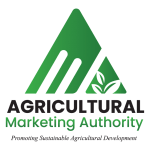Word from the Market with AMA
South Africa has a highly diversified, market-oriented agricultural economy that extends across various product ranges, including all major grains (except rice), oilseeds, deciduous and subtropical fruits, sugar, citrus, wine, most vegetables, livestock, and a well-developed poultry and egg industry. Value-added activities include the processing and preserving of fruit and vegetables, dairy products, livestock and grain mill products, amongst others. Agriculture plays an important role in the process of economic development and can contribute significantly to household food security. Despite its large agricultural potential and its significant exports, South Africa exhibits a high discrepancy between the population’s demand and the local production for many food products. This gap must be filled by imports and the country has a large network of food importers and distributors.
According to the recent available trade data, South Africa’s main agricultural imports are palm oil, milled rice, wheat, oilcakes and herbicides etc. Additionally, the top five suppliers of imported agricultural products into South Africa include China, Eswatini, United states of America, Germany and India respectively. South Africa remains one of the most important trading partners for Zimbabwe; with Zimbabwe importing 40 percent of its total imports and exporting 75 percent of its total exports to South Africa. Tobacco, raw cane sugar, raw hides and cotton are the main agricultural products exported by Zimbabwe to the world. Currently South Africa import large volumes of tobacco, black tea, oilcake and macadamia nuts from Zimbabwe. It is critical to assess the potential products that can be traded between South Africa and Zimbabwe, however, this article only provides a generally overview on the documentation requirements and procedures to supply South African markets.
All imported food and agricultural products are required to comply with South Africa’s food health and phytosanitary laws. In general, products are not allowed to enter South Africa if they are deemed to be a danger to human life or well-being, either directly or indirectly. All food and agricultural products that enter South Africa must be inspected to ensure that they are not contaminated with any pest and that they are fit for their intended use. The health and, Sanitary and Phytosanitary (SPS) regulations and procedures applied on imported agriculture products are broadly similar for all types of products. Under South African import laws, it is the responsibility of the importer to ensure that any product entering the South Africa customs territory is in full compliance with South African health and SPS regulations. The enforcing authorities will inspect the goods and relevant import/export documentation to ensure that compliance with South African and decide whether or not the goods may enter South African regulations. In cases where non-compliance is found, the goods may require treatment prior to entering South Africa or they may be rejected and ordered destroyed or disposed of outside South Africa. It is therefore very important that importers and exporters ensure that compliance is achieved before the goods are shipped to South Africa.
There are numerous documentary requirements depending on the product. The importer and exporter should always conduct a thorough investigations into the documentary requirements before shipping consignments. Therefore, irrespective of the mode of transport used when importing goods, the importer or his freight forwarder is required to present the following documents to the customs authorities: bill of entry, customs sheet, commercial invoice, import permit, transport documents, and certificates of origin.
For specific requirements, the South Africa’s meat import procedure and requirements are regulated mainly through the Animal Diseases Act, 1984 (Act no. 35 of 1984), and the Meat safety Act, 2000 (Act no. 40 of 2000). An importer should have a South African veterinary import permit before the consignment departs from the country of origin. Import permits for animal products imported for commercial purposes are only issued to companies residing in South Africa or an agent in South Africa appointed by an international company.
Some of South Africa export/import regulatory bodies are, The Department of Agriculture, Land Reform and Rural Development (DALRRD), The Department of Trade Industry and Competition (DTIC), International Trade Administration Commission (ITAC): Export and Import Control Unit.
This article was written by a team from the South Africa National Agricultural Marketing Council (NAMC). Mr Lucius Phaleng is the lead author of the article. The purpose of the article is to educate local farmers on requirements necessary for them to successfully export their produce to SA. Feedback mmlambo@ama.co.zw gmashiri@ama.co.zw





